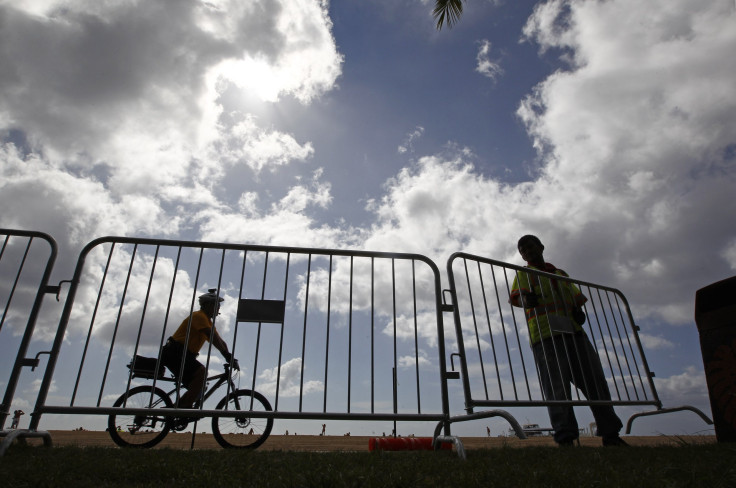Honolulu Approves Moving Homeless People From Tourist Spots, Bans Sitting, Lying On Sidewalks

The Honolulu City Council approved three bills on Wednesday aimed at moving homeless people away from tourist spots in the state's capital, and also banned sitting and lying down on sidewalks in the popular Waikiki neighborhood. The bills will now be sent to Honolulu Mayor Kirk Caldwell for his approval.
Officials are reportedly planning to allow the estimated 4,700 homeless people on Oahu, the third largest of the Hawaiian Islands, to camp temporarily on Sand Island. The mostly industrial island was reportedly used as an Army internment camp during World War II, to house Japanese-Americans. The city has reportedly faced serious pressure from tourism industry officials complaining about the homeless and open defecation, and one of the approved bills bans urinating and defecating in public places in Waikiki.
"I've never been so sad about something we're about to do," Councilwoman Kymberly Pine said before the vote, according to Star-Advertiser, a local news paper.
According to reports, a fourth bill, aimed at restricting homeless people from resting on sidewalks, was not passed by the council. Some of the councilmen, who voted against the bill, raised concerns that the city was criminalizing homelessness instead of providing assistance to those in need.
"We're helping the public to view the homeless as faceless people — not even people, but objects to sweep away," Councilman Breene Harimoto said, according to The Associated Press. Harimoto, who voted against all the proposals except the ban on urinating and defecating in the Waikiki area, added that he was very disturbed by the bills being passed.
Caldwell's administration is reportedly working toward a program that will provide permanent housing for the homeless.
"On any given day there are more than 100 shelter spaces available, but folks asked for a different option, so this is a different option," Pamela Witty-Oakland, director of the city's department of community services, said, according to the AP.
© Copyright IBTimes 2024. All rights reserved.





















